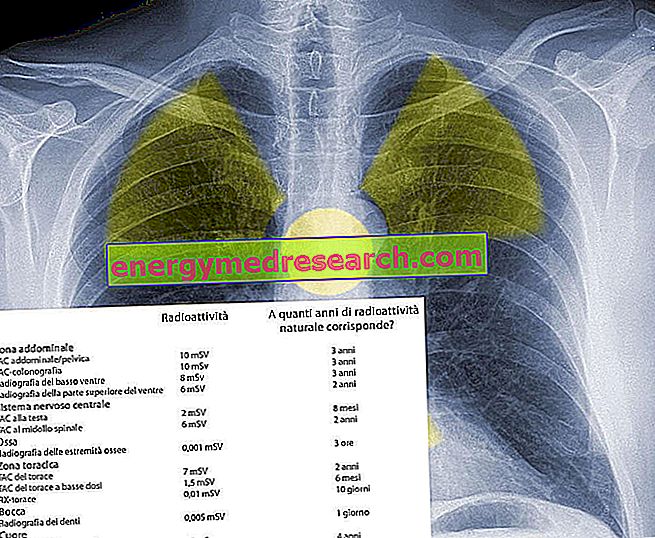Definition
"Psoriasis" is a non-contagious autoimmune inflammatory skin disorder with a chronic course, having a marked genetic predisposition and an estimated global incidence of around 2%. Psoriasis is not, in itself, a serious disease, although its psychological impact on the quality of life is rather significant, and not always subordinated to the severity of the disease.
Causes
The hereditary component and stress are the two etiopathological elements most involved in the onset of psoriasis. Depression, depressed mood and negative traumatic events in a person's life can help to accentuate the symptoms of psoriasis.
- Risk factors that increase the lesions in a patient suffering from psoriasis: alcoholism, upper respiratory tract infections, overweight, smoking
Symptoms
The symptomatology of psoriasis is realized in the formation of red spots on the skin, more or less extensive, well circumscribed, covered with dry, abundant and friable scales. Lesions can localize at the level of the elbow, scalp, knees or spread throughout the body. Psoriasis is often accompanied by itching and localized redness.
Natural Care
Information on Psoriasis - Drugs for Psoriasis Treatment is not intended to replace the direct relationship between health professional and patient. Always consult your doctor and / or specialist before taking Psoriasis - Psoriasis Medications.
drugs
Rebellious to treatment, psoriasis can simply be "turned off", not completely cured; dermatosis is recurrent at more or less long intervals. The goal of treatment is to reduce injuries as much as possible; to underline, however, that psoriasis tends to recur very frequently, therefore the patient will have to follow treatment cycles throughout his life.
Each individual case of psoriasis is different from the others, therefore, before undertaking a therapeutic procedure, the meticulous control of the severity of the lesions is necessary.
In the vast majority of cases, the psoriatic patient responds positively to topical treatments with creams, ointments, compresses, ointments or specific gels, to be applied directly on the area affected by psoriasis.
It is always recommended to signal the possible state of pregnancy, in order not to cause harm to the unborn child: not all creams used for the treatment of psoriasis, in fact, can be used during this period.
In mild forms of psoriasis, treatment may not be necessary: it is recommended, however, to apply emollients to the skin, to increase its natural elasticity.
In addition to topical treatment, the patient with psoriasis should eventually limit or, better yet, avoid alcohol consumption altogether, as, as analyzed, alcoholism and smoking can exacerbate psoriasis symptoms.
Some forms of psoriasis, more severe, may require the application of vitamin D, calcipotriol (particularly indicated for scalp psoriasis), calcitriol and tacalcitol; also vitamin A, with its derivatives (eg tazarotene), is a pharmacological preparation recommended to reduce psoriatic lesions, although its use is banned during pregnancy and lactation. Creams containing these active ingredients can be associated with cortisone ointments, able to exert a powerful anti-inflammatory effect. Steroids cannot be used for longer than 4 weeks: consult a doctor before use.
Preparations based on coal tar are indicated for the treatment of mild to moderate psoriasis: do not use during the first trimester of pregnancy.
For a long time, for the treatment of psoriasis lesions, the drug ditranol is used in therapy, particularly suitable for the "plaque" variant of psoriasis: the product creates irritation to the skin, therefore it is recommended to apply it exclusively at the lesion.
Those just described are just some of the many drugs used in therapy for the treatment of psoriasis lesions: in fact, given the spread of the disease and diversification in its many forms, the researchers have experimented many pharmacological specialties. We see the most used.
Emollients : the use of emollient and nourishing creams, ointments or ointments is recommended for all forms of psoriasis, even the most mild. The topical application of these products, in fact, is useful to counteract skin dryness, cracking and flaking. The psoriatic variants that involve a skin surface inferior to 1% exclusively require these therapies; for more complex forms, it is recommended to use complementary therapies, in addition to the application of emollient products. The following are the most commonly used emollient active ingredients for the formulation of creams:
- paraffin
- sweet almond oil
- dimethicone
- tar
- ichthyol
- glycerine
Vitamin D and Derivatives : these active substances find applications in the therapy for the treatment of psoriasis lesions as they favor cell replication. It is recommended not to use these drugs in the generalized and erythrodermic pustular variants of psoriasis: the application of vitamin D, or its derivatives, could indeed predispose the subject to a greater risk of hypercalcemia. These products are effective, although rather irritating to the skin.
- Calcitriol (eg. Silkis ointment): active derivative of vitamin D. The active ingredient is little irritating to the skin, unlike most substances that fall into this category. It is recommended to apply the product on the skin affected by the lesions (up to cover max. 35% of the body surface or 30 grams of product per day), twice a day, after careful cleaning of the hands and the affected area.
- Calcipotriol (eg Psorcutan cream, Daivonex ointment, Psorcutan Sol.Cut): indicated for the treatment of plaque psoriasis. Apply the Calcipotriol-based cream or ointment twice a day, after cleaning the area affected by psoriasis; do not apply more than 100 grams of drug on the skin per week. For scalp psoriasis, the dosage must be reduced. Consult your doctor.
- Tacalcitol (eg Ticlapsor ointment, Vellutan emulsion): it is recommended to apply the drug in the form of ointment or cream, once a day (10 g), in the evening, before bedtime. Indicated for the treatment of plaque psoriasis.
Vitamin A and derivatives : some psoriasis lesions respond positively to the application of tazarotene, a derivative of vitamin A: the product is odorless and does not dirty clothes; the only side effect is the mild irritation that triggers the drug in contact with the skin; therefore, it is recommended to spread the cream only at the point of the wound, avoiding contact with the uninjured skin.
- Tazarotene (eg. Zorac GEL): it is recommended to apply the cream or ointment on the skin affected by psoriasis (indicated for mild forms and for the plaque variant). Do not use during pregnancy and breastfeeding. The manufacturer contraindicates its use in pustular psoriasis and exfoliative psoriasis. Prolong therapy for 3 months.
- Acitretin (eg. Neotigason): the drug is a retinoid, a synthetic analogue of vitamin A. The therapeutic effect occurs after 14-28 days from the beginning of therapy. Do not take the pregnancy. Begin therapy by taking 1 25 mg capsule or 3 10 mg capsules, for 2-4 weeks. For the maintenance dose: take 25-50 mg of the drug a day, for another 6-8 weeks.
Mineral tar : this active ingredient is used for the preparation of multiple medicinal specialties for the treatment of psoriasis, dandruff and seborrheic dermatitis, as it slows down the cellular replacement process and determines a discrete localized anti-inflammatory effect. Point to disadvantage is the smell that the product gives off in contact with the skin: for this reason, many patients tend to prefer other products.
- Tar (ex. Exorex): it is recommended to apply the product on the skin 1-3 times a day, depending on the severity of the lesions. Its use can generate itching, local irritation and allergic reactions.
Topical corticosteroids :
- Hydrocortisone (eg Locoidon, Colifoam): it is a topically applied steroid drug. It is recommended to apply the solution in the area affected by psoriasis once a day; the therapy should be continued for a few weeks, since the first improvements can be observed at least after 7 days.
- Desonide (eg. Sterades, cream or skin solution): for the treatment of psoriasis, the drug is available as a cream, lotion, foam or gel to be applied directly to the lesion. The indicative dosage involves applying a thin layer of cream 2-3 times a day. Do not administer to children under three months of age.
- Mometasone (eg. Nasonex, Rinelon): for the treatment of psoriasis, apply a thin layer of cream on the infected area, once a day, in full compliance with the instructions given by the doctor.
It is recommended not to use topical corticosteroids for long periods: such behavior could induce systemic and topical side effects. Always consult your doctor before taking steroid therapy.
Salicylic acid: the drug is a keratolic product, indicated for the aggressive forms of psoriasis of the scalp, to be used always in association with emollient products.
- Salicylic acid (eg Trans Versal, Kerafilmver): the drug is available in the form of liquid, cream, lotion or foam. Leave the product on for at least an hour before removing the product. Consult your doctor.
Biological drugs : the use of these drugs is recommended in the case of medium-severe psoriasis, when psoriatic lesions spread over 10% of the body surface. When the application of topical creams is not sufficient, it is recommended to take innovative drugs, such as biological-type active ingredients, orally.
- Adalimumab (eg. Humira): administer the drug subcutaneously at an initial dose of 80 mg; proceed, every other week, to the dosage of 40 mg. Consult your doctor.
- Etanercept (eg Enbrel): indicated for the treatment of plaque psoriasis, even in children older than 8 years. Indicatively, take 50 mg of drug, twice a week during the first 12 weeks of therapy. Administer the drug subcutaneously.
- Infliximab (eg Remicade): take the drug by intravenous infusion at a dose of 5mg / kg, to be repeated at the second and sixth week of starting therapy. Proceed by repeating the intake every 6-8 weeks. In case of no response after 14 weeks from the first infusion, it is recommended to change the product for psoriasis treatment.
Immunosuppressants : these are powerful drugs used for severe forms of psoriasis
- Ciclosporina (eg Sandimmun Neoral): the administration of this drug is still the subject of discussion and perplexity, in particular in terms of dosage. The drug is indicated for the treatment of psoriasis lesions when the other treatments do not report satisfactory results. Before starting a similar therapy, consult your doctor. Do not administer to children under the age of 16. Begin therapy with a dose of 2.5 mg / kg per day, in two doses. The dose can be increased up to a maximum of 5 mg / kg / day.
- Methotrexate (eg. Reumaflex, Methotrexate HSP, Securact): it is recommended to take the drug orally or by intramuscular / intravenous injection at a dose of 10-25 mg, once every 7 days. The posology can be changed based on the readiness to heal psoriasis lesions.
| " | 1 | 2 | 3 | 4 | 5 | 6 | » |



